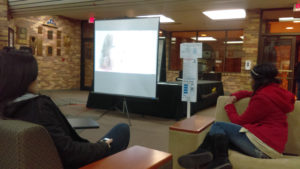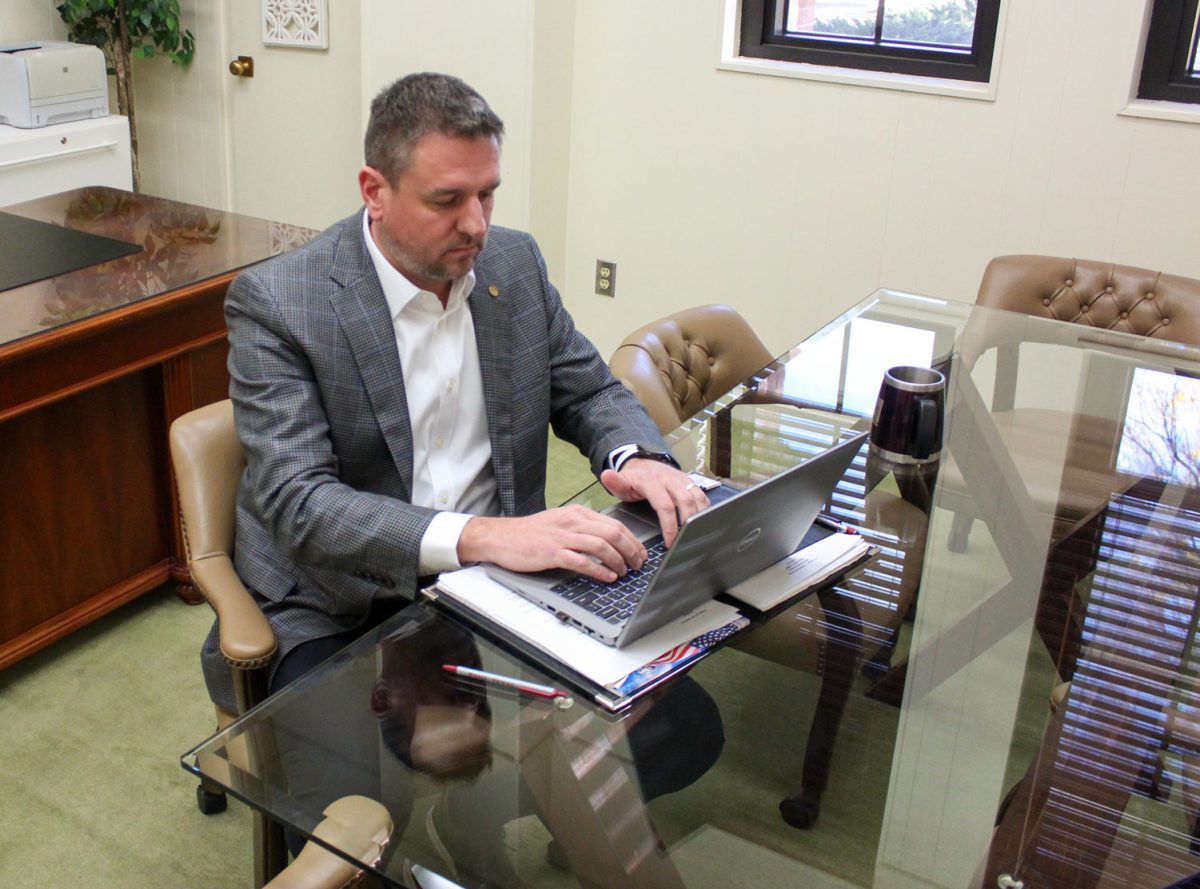
The Office of Student Development and Orientation hosted a watch-in documentary, American Divided: Something in the Water, about the ongoing water crisis in Flint, Michigan on Jan. 26 at 7 p.m. in the Clark Student Center atrium.
Teresa Perez, radiology senior, said, “It was very enlightening. I haven’t heard much about it in the media or on the news or anything so personally I didn’t know much about it.”
This was a part of a the week long Human Rights Week, organized by the Office of Student Development and Orientation, which included a panel about the North Dakota Access Pipeline hosted by Syreeta Greene. More than 175 students, faculty and staff were involved in Human Rights Week.
Ruby Arriaga, coordinator of student activities, said, “It’s kind of a way to educate students and discuss the different things we can do. We’re educating students on what they can do for Flint. It’s not only about educating students on about their rights, it’s also about telling them what they can actually do for their rights to support anything that that’s going on. For this Human Rights Week, we focused on water.”
There were also booklets of the Universal Declaration of Human Rights. There are 30 human rights, and among these rights access to drinking water is not listed. Arriaga disagrees with this notion.
“Access to drinking water is very much a human right. Everyone should have access to clean water. Everyone needs water. They don’t need it to be healthy, they needed it to live. So everyone should be able to live, hence everyone should have access to drinking water,” Arriaga said.
The City of Flint was drowning in debt, making the Michigan State governor intervene and hire an emergency manager to cut the city budget at all cost. This included switching the Flint water system from Detroit to Flint River in order to save $5,000.
Alden Thompson, radiology senior, said, “I don’t think he was qualified to change the city’s water system. He didn’t help the people of Flint at all. He tried to cover his tracks and cover their mistakes up instead of helping the people.”
The city also had lead pipes, which were easily corroded by the Flint River water. Many who were exposed to the water were vulnerable to repertory infections, hair falling out, and panic attacks. Despite public outrage and warnings from health experts, the state government was slow to react to the situation.
Thompson said, “I don’t think the they are dealing with it very well. I think it could be handled better. So I feel like there should be better government a governor that will listen to the people with the crisis. So they need people in office that will do their job and will protect and look after the people so that this crisis will never happen again. It shouldn’t have happened at all.”
Despite the water system switching back to Detroit, experts say that it will take millions of dollars and 15 years to fully solve Flint’s water crisis. This is why the Office of Student Development and Orientation was also accepting donations in order to help those suffering the water crisis.
“I think they should put new and better pipes in. They should also do a better job pre-processing the water so this won’t happen again. And I do understand that this takes a lot of time and money. That’s why different organizations are trying to get them clean water and people across the country should help them as much as they can,” Thompson said.
The documentary exposes the municipal corruption in Flint. There were specimens collected by the city which conflicted with a different entity in which both parties agreed to show false data claiming that the tap water was drinkable. Despite the dictatorial practices of emergency managers, they are held to little to no accountability.
Perez said, “I think it was interesting to see the system of government that we live in. And it was shocking to know that documents are written in order to protect people like with vague clauses in which the manager wasn’t really held accountable and responsible and that’s how he was able to get away with the things that he was doing.”
The Office of Student Development and Orientation organized this watch-in to remind many students that the situation in Flint is still ongoing.
“Just educating students about the Flint water crisis is a success in itself,” Arriaga said.













Robert • Feb 1, 2017 at 2:17 PM
“Access to drinking water is a human right” Preposterous. You die if you don’t eat so try taking what you want from the grocery store and you’ll find out what the right to arrest means.